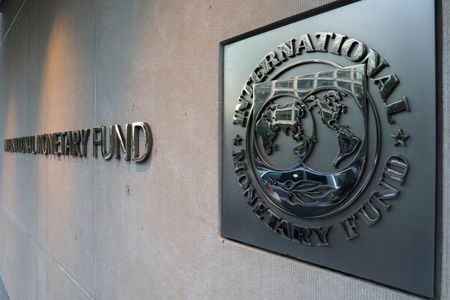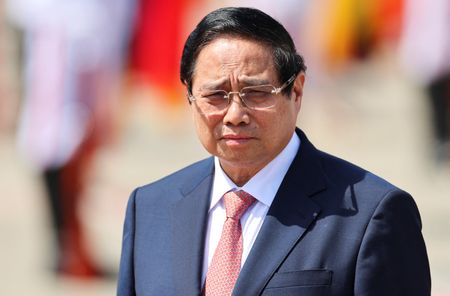DHAKA (Reuters) -The International Monetary Fund is set to release $1.3 billion to Bangladesh in June following the fourth review of its $4.7 billion loan programme and a breakthrough in talks on exchange rate reforms, the finance ministry said.
The funds, covering both the fourth and fifth tranches, had been held up as the IMF pressed for greater exchange rate flexibility, particularly the adoption of a crawling peg mechanism that would allow the taka to adjust gradually over time.
The fourth review in Dhaka in April was followed by further discussions during the IMF and World Bank’s Spring Meetings in Washington last month that focused on critical reforms in revenue management, fiscal policy, and the foreign exchange regime.
“After carefully reviewing all the issues … both parties have agreed on the revenue management, currency exchange rate and other reform frameworks,” the finance ministry said in a statement on Wednesday.
The IMF confirmed it had reached a staff-deal with Bangladesh on the combined third and fourth reviews of the country’s Extended Credit Facility (ECF), Extended Fund Facility (EFF), and Resilience and Sustainability Facility arrangements.
Upon approval by the IMF Executive Board and completion of required prior actions, Bangladesh will receive SDR 983.8 million (approximately $1.3 billion), it said in a statement.
Bangladesh had also requested an augmentation of SDR 567.2 million (about $762 million) under the ECF and EFF to address rising external financing needs and support macroeconomic stability, the IMF said.
The move comes amid persistent macroeconomic pressures, including high inflation, low growth, and an external financing gap.
The government has committed to tightening fiscal and monetary policies, reforming the tax system, improving banking sector governance, and advancing climate-related investments to stabilize the economy and enhance long-term resilience, it said.
The government has dissolved the National Board of Revenue (NBR), replacing it with two divisions under the finance ministry, to meet a key IMF condition.
One division will handle tax policy with the other managing tax collection and administration, aiming to enhance efficiency, transparency, and accountability, the government said.
In addition to the IMF funds, the government expects budget support of $2 billion from development partners, the finance ministry added.
Bangladesh turned to the IMF in 2023 for the $4.7-billion bailout as its foreign reserves were pressured by a global surge in commodity prices triggered by Russia’s invasion of Ukraine, straining its ability to pay for key imports of fuel and gas.
It received $2.3 billion across the first three tranches.
An interim government led by Nobel Peace laureate Muhammad Yunus took office in August after the ouster of former prime minister Sheikh Hasina following deadly protests.
(Reporting by Ruma Paul; Additional reporting by Nilutpal Timsina in Bengaluru; Editing by Clarence Fernandez and Joe Bavier)











